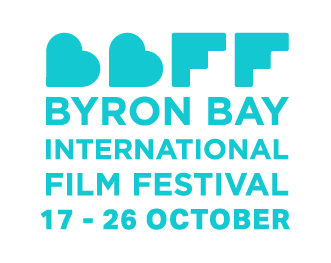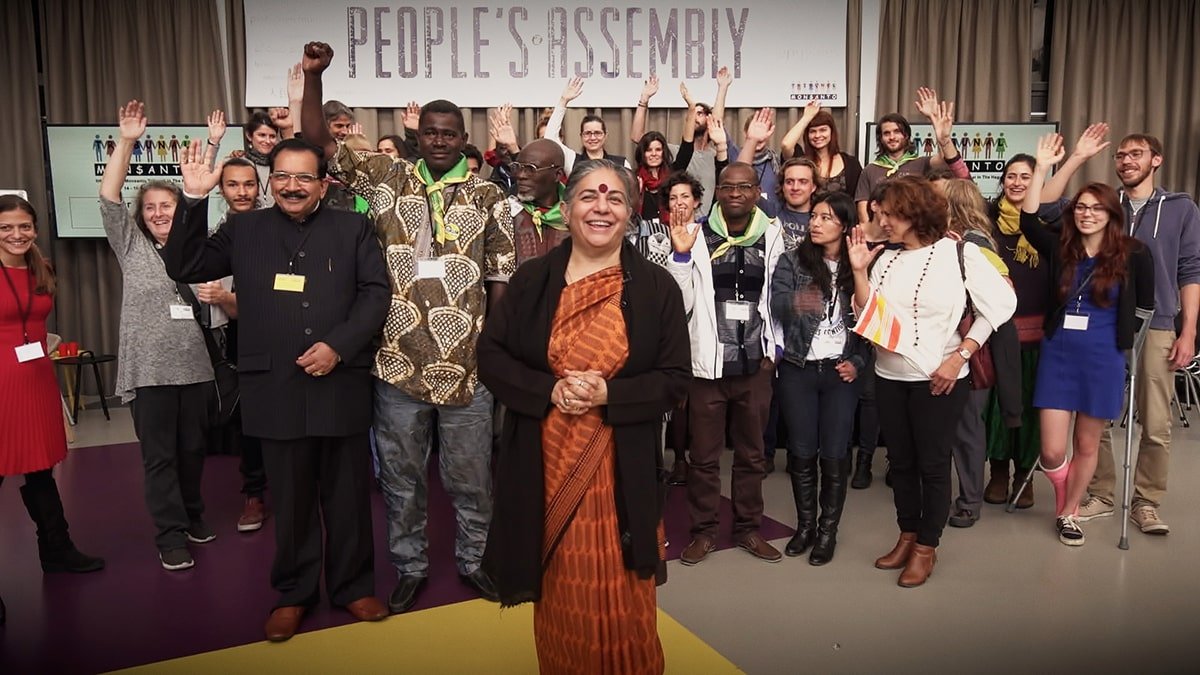BBFF2021 Meet the Filmmaker: Camilla and James Becket
How did the willful daughter of a Himalayan forest conservator become Monsanto’s worst nightmare?
The Seeds of Vandana Shiva tells the remarkable life story of Gandhian eco-activist Dr Vandana Shiva, how she stood up to the corporate Goliaths of industrial agriculture, rose to prominence in the sustainable food movement, and inspired an international crusade for change.
We spoke to filmmakers Camilla Denton Becket and James Becket to learn more about the ecological issues at stake, and what audiences can do to make a difference.
Screening at Palace Cinemas Byron Bay
Monday 20 December at 6:30pm
Buy tickets
The Seeds of Vandana Shiva is a powerful and highly pertinent documentary. How did it come about?
We first met Dr Shiva when we were involved in a series of environmental symposia that were commissioned by His All Holiness Patriarch Bartholomew, who is also well known as ‘The Green Patriarch’. The symposia brought together climate and environmental scientists, religious leaders, policymakers and journalists to look at the ecological crises affecting major water bodies around the world.
Like everyone else, we were enormously impressed by Dr Shiva, not least for her intelligence and ability to inspire others towards meaningful change. During the planning stages of a symposium to take place on the Ganges River, we visited Dr Shiva’s organic farm in Northern India. It was during this visit that we decided to make a film about her extraordinary life, especially as it had never been told on film before. We were of course very fortunate that she agreed.
While undertaking her work, Dr Shiva has faced an incredible amount of resistance from multinational agribusiness corporations. How have they reacted to this film; have you encountered any problems?
We completed The Seeds of Vandana Shiva this year and to date, it has only been seen at festivals and at private community screenings. So, the film is not yet widely available. Certainly, we’ve had trolls on our social media but no significant blow-back from agribusiness. It appears that multinationals are nowadays more about greenwashing their industrial practices as ecological and sustainable, preferring to be seen as on the side of the environment than dismissive of it.
The problem is that the industrial model remains, fundamentally, both extractive and exploitative, focused on short-term gains for shareholders rather than on the long-term health of the planet or people. That said, it’s a fact that eco-activists around the world are always under significant threat so we should be constantly aware, listening, and doing all we can to support and protect them.
You both have worked on a number of films which address health, social justice and environmental issues. Are there any which are particularly aligned with this film?
As mentioned, we met Dr Shiva while making films for the Religion, Science and Environment Symposia that invited leaders from science, religion, and public policy to collaborate on finding ways to address the ecological crises of the world’s major water bodies. We made eight films about these issues, including The Amazon: The End of Infinity, The Arctic: The Consequences of Human Folly, and The Mississippi: At the Tipping Point.
We believe any film that explores environmental issues must necessarily address social issues as well – not only are marginalised communities most affected by environmental degradation and climate chaos but the ecological knowledge of Indigenous cultures has too long been suppressed. It’s time for us re-learn how to live as part of nature rather than to continue with the insane delusion that we are a) superior to nature and b) we can endlessly exploit and control her without consequence.
Your cameraman Loreto Di Cesare created his own film (Revolution: Food) which features Dr Shiva. Since creating Seeds, have you noticed more filmmakers addressing the same issues?
Loreto is one of a few cinematographers who worked on this film, and we should mention that all of them volunteered their expertise. Loreto is a great cook and lover of food but before travelling to India with us, he had little knowledge of the broader issues at stake. However, he was so impressed by his experience that he came home and made Revolution: Food using some of the footage he shot with us in India. His film was released in 2015.
What were the biggest challenges involved with making this film?
One of the biggest challenges was chasing Dr Shiva all over the world. Before the COVID-19 pandemic, she was constantly on the road, working with small farmers or educating policymakers about the significant costs of industrial food. We felt it was important to get that global perspective, because small farmers across the world are being systematically dispossessed and disenfranchised, and the ecological and climate costs are only now beginning to be understood.
The other challenge was sourcing and licensing archival footage. Since our primary story was Dr Shiva’s life of eco-activism, we had to find footage of significant events in India that happened decades ago and before the days when every moment was recorded on film.
A number of organisations have partnered with you, including regeneration and seed saving groups. As awareness around the negative aspects of industrial food grows, what do you think the situation will be like in ten or twenty years time?
We like to think positively, and we hope that the film and the ecological food movement’s work speaks to the possibilities of what both communities and individuals can do for change. One challenge is to get policymakers on board to support farmers in transitioning to ecological and regenerative farming and food production and to stop subsidising multinational destruction of our natural resources. This will make organic and regenerative food more abundant, available, and affordable.
With enough community awareness and pressure, change will inevitably come - we’ve seen it before. But to get to the point where we are both living sustainably and feeding the world we need a cacophony of empowered voices building awareness in local communities and putting policymakers who are prioritising ecological farming and food in office.
In the meantime, the will to eat locally and sustainably is growing but we need to scale out – and fast. We can begin the process by buying local, organic, fair-traded food and supporting our local farmers and food producers.
The film has an impressive advisory board of environmental, agricultural and ecological experts. Do you have any plans to engage with governments around the world to reduce the use of genetically modified seeds?
We absolutely intend to put the film in front of policymakers and will work with our distributor to make sure this occurs in every possible forum. Without any promotion, we have already been approached by the Environmental Protection Agency in California for a screening.
We believe that once policymakers fully appreciate why ecological food systems are the logical future of food, genetic modification, and the industrial model will be universally accepted as a failed experiment, just like Dr Shiva and multitudes of other scientists already know it to be.
What legacy do you hope Seeds will achieve?
Of the many comments we’ve heard after screenings of the film that we’ve attended so far, three are most common:
Why have we never heard of this amazing woman before
Why do we not know about this crisis in food
What can we do?
So, if we achieve anything with The Seeds of Vandana Shiva, our mission is to build awareness of the costs of industrial food, the promise of ecological food for the future, and how we can each vote for one or the other by what we choose to eat.
What advice would you give to anyone who is interested in becoming involved in the regenerative food movement?
As far as you are able, buy local, organic, and fair-traded food. Support your local organic farmer and food producer. If you don’t have a garden, join a community garden; learn how to save seeds and grow food. Start a seed library so that you can share locally adapted seeds.
Donate to, volunteer for, and do whatever you can to grow organisations working to build the ecological and regenerative food movement. Share your awareness of the issues in your community and advocate for ecological food and farming to your elected officials.
What are your upcoming plans, do you have any new projects or films in the works?
As we have just finished The Seeds of Vandana Shiva, we are currently focused on rolling out distribution and our impact campaign for this project.
With so many film festivals having transitioned to virtual screenings due to the COVID-19 pandemic, what does it mean for you to have this film showing in front of live audiences? Were there any other deciding factors in choosing to show the film at BBFF?
It’s awesome! We’ve had many digital screenings but it’s just not the same as seeing a film, with an attentive audience, all in one place, on the big screen. We have attended one or two theatrical screenings before this one and the difference between virtual and theatrical is significant.
We’re thrilled to have The Seeds of Vandana Shiva showing at BBFF. Thank you for including us!






